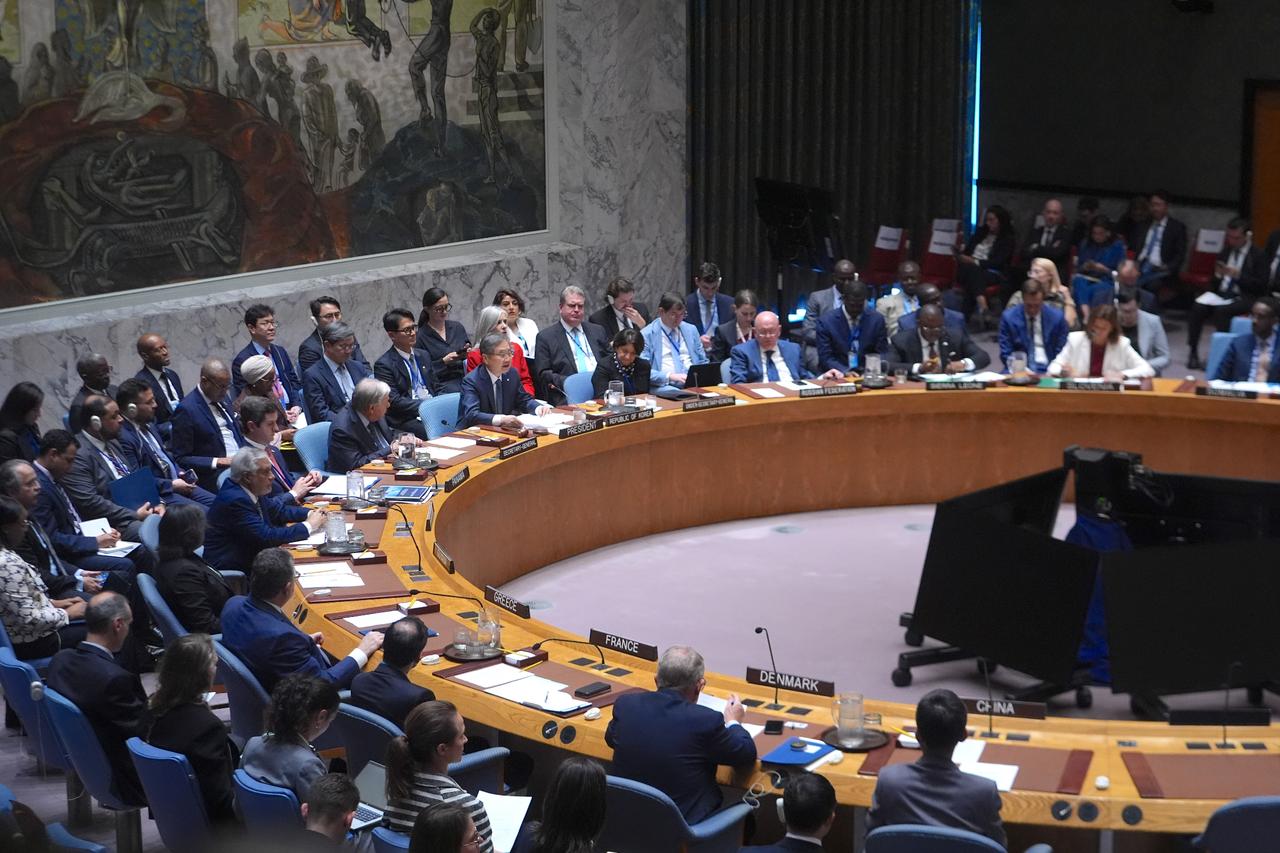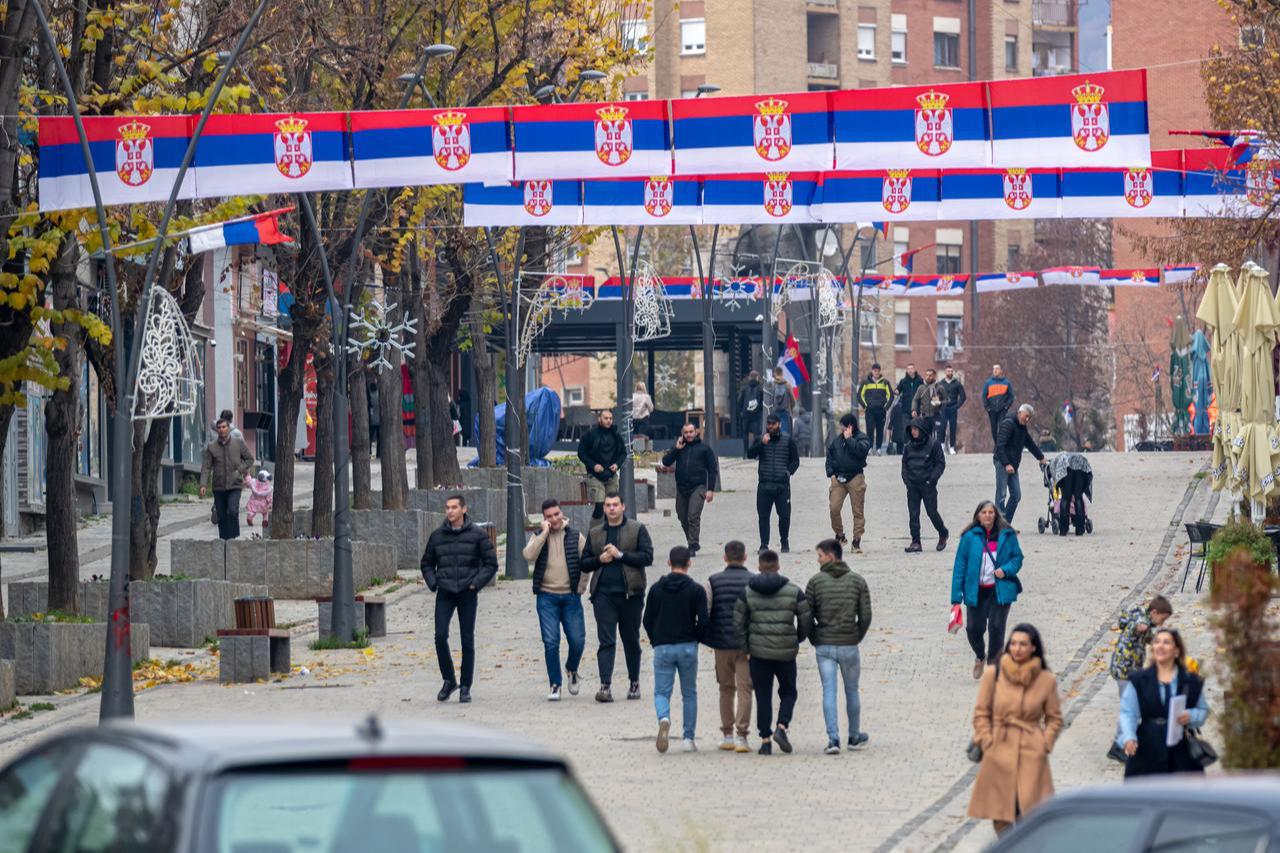
Kosovo and Serbia traded sharp accusations Tuesday during a U.N. Security Council session on the latest report by the U.N. Mission in Kosovo (UNMIK), with Pristina calling the mission a costly relic that should be shut down, while Belgrade urged its continuation.
Kosovo’s Foreign Minister Donika Gervalla-Schwarz rejected Serbia’s terminology, saying: “‘Kosovo and Metohija’ is a clear expression of the hegemonic ambitions of Serbia over Kosovo.”
Serbia, which has never recognized Kosovo’s 2008 declaration of independence, continues to refer to the country by the name it used when it was part of Serbia.
“In the present, Serbia is a real threat to the region … We see the systematic spread of propaganda preparing a military aggression against our country,” Gervalla-Schwarz said.
Pointing to Serbian military activity, she accused Belgrade of operating a “military machine equipped far beyond what is necessary for defense—equipped even by Russia and China,” citing recent joint exercises, including one in China.
Gervalla-Schwarz said Serbia’s actions reflect broader geopolitical goals. “It’s not about four small municipalities, it’s about Russia, its allies and geopolitics,” she said, referring to Kosovo’s Serb-majority municipalities that have fueled tensions between the two neighbors.
“For a reason, many call it little Russia, because Russia is deeply embedded in Serbia,” she added.
She dismissed the UNMIK report on Kosovo’s future as “biased and incomplete,” arguing that “it will surely not be the biased UNMIK report that defines the future of our region.”
“UNMIK has to be closed. It is a huge waste of UN money. It serves no purpose anymore,” she said.

Serbian Foreign Minister Marko Djuric countered that the reality for Kosovo’s Serbs is far worse than described.
He said no report “captures the full horror unfolding daily,” calling the situation “the shattering of human lives” and a “systemic denial of rights.”
Djuric accused Kosovo of attacking existing agreements and escalating tensions. He warned that Pristina’s “ongoing militarization” was increasing risks across the Balkans while insisting that Serbia remained committed to peace.
He said Belgrade would continue to defend the rights of Kosovo’s Serb population and urged the Security Council “to uphold UNMIK fully, condemn abuses of Serbs’ rights, and defend international law as the bedrock of security.”
Milbert Dongjoon Shin, deputy special representative of the secretary-general for UNMIK, told the Security Council there is “no alternative to the normalization of relations and accountability for past violence.”
Speaking via video link, he warned both sides to “avoid measures that might erode trust,” citing ongoing political divisions and risks to stability.
Shin welcomed the Oct. 12 Kosovo local elections, describing them as conducted in a “peaceful and inclusive atmosphere,” and noted that the Election Complaints and Appeals Panel and the Supreme Court “reinforced the legal guarantees of inclusiveness and electoral integrity.”
He said “smooth and timely formation” of local governments is essential because “municipal governments are the closest link to communities” and “play a critical role in translating people’s voices into actions.”
At the national level, he said Kosovo continues to face political deadlock. Since February legislative elections, divisions between parties have prevented the formation of a government and the constitution of the Assembly of Kosovo.
On regional cooperation, Shin welcomed the June and September meetings between Belgrade and Pristina in Brussels.
In northern Kosovo, he said authorities have allowed residents with Serbia-issued documents to “regularize their status in the Kosovo system,” but warned that the full enforcement of the Law on Foreigners and the Law on Vehicles on Nov. 1 “could introduce administrative challenges affecting access to essential rights and services.”
He added that the closure of Serbia-run institutions could affect “access to health, education and culture.”
Kosovo declared independence in 2008, and 108 countries—including the United States and Türkiye—have recognized it. Serbia, however, continues to regard Kosovo as part of its territory.
Recent years have seen heightened tensions over regions of Kosovo with large ethnic Serb populations, prompting Serbia at times to amass troops along the border.